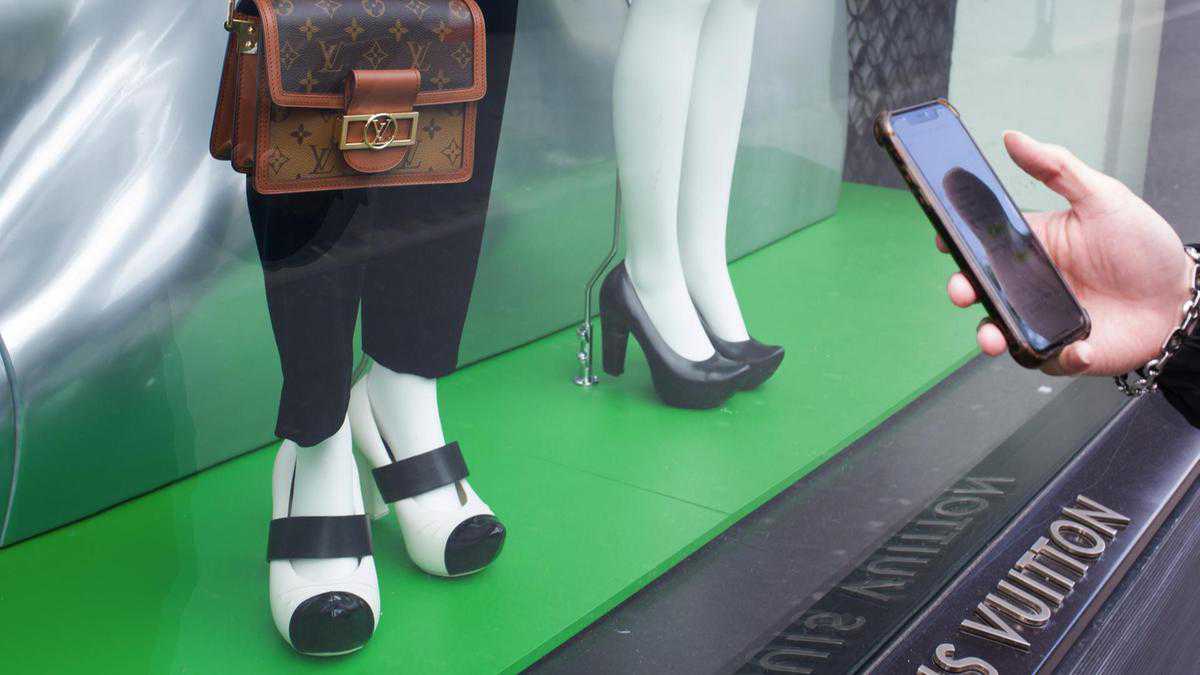Buying diamonds in lockdown? WhatsApp will probably be your best friend
15 April, 2021

As Italy entered a fresh coronavirus lockdown and shut shops in March, Genoa-based jeweller Gismondi 1754 considered messaging service WhatsApp to market a 300,000-euro precious stone ring to a wealthy Swiss client.
As well, sales assistants at luxury puffer jacket brand Moncler were arranging gourmet dinner deliveries to customers homes so they could dine however you like while you're watching a video streaming of the brand's latest collection.
The pandemic has forced luxury goods companies to use social media, video and virtual showrooms to woo their wealthy customers in Europe and keep them shopping at the same time when tourists, especially from China, have already been absent for greater than a year.
Retailers reopened in Britain and almost all of Italy on Monday, but they remain shut in France and access is fixed in Germany, where in Berlin, for instance, a negative Covid test is required to go into most shops.
Senior executives in the market said this trend of selling outside the traditional store network, while not replacing the necessity for physical shops, is here to stay.
"We are learning that we can also have a high level of service with a minimal degree of physical contact," Moncler's boss Remo Ruffini told Reuters. "Distant sales are a new frontier, something in the middle between e-commerce and a normal store."
Analysts say that lockdowns and "staycationing" imply that wealthy Europeans have money to invest they are not using to splurge on fancy hotels or Michelin-starred restaurants.
Designer brands are keen to capture a few of that cash.
High-end labels such as Hermes, that used to be more reticent to market online, have had to totally embrace e-commerce. Online earnings for the industry has doubled to about 20 per cent of sales in the past year alone, predicated on analyst estimates. Boston Consulting Group expects that percentage to go up to 25 % by 2023.
Luxury labels also have invested in transforming store assistants into personal shoppers who pamper their VICs - very important clients - by sending them products in the home and keeping in contact regularly. Most brands now stream products on social media and show customers specific product videos.
Before the pandemic, Gismondi would not have sold a 300,000-euro, 10-carat diamond ring without showing it to your client in person.
"I was on the phone chatting with the girl who is buying it, and it came up that was the imagine a lifetime for her," Massimo Gismondi, leader of the jewellery group, said.
From that moment, an exchange started with the girl via WhatsApp and video-calls to obtain the perfect design for the ring that might be sent to her home.
"Folks are craving for leisure, for time for savour life and spending," Mr Gismondi told Reuters.
French luxury group LVMH's star label Louis Vuitton in addition to online sales has started taking its shops to wealthy clients' doorsteps in america.
The "LV by Appointment" campaign essentially brings a tailor-made shop on wheels to the customer, curated with a personalised collection of pieces - from leather goods to watches and perfumes - for many who choose the service.
LVMH, the first to report results for the first quarter, set a very bullish tone for the industry. Revenue bounced back strongly, using its fashion and leather goods division surging 52 % - double analysts' forecasts. Sales in Europe remained in negative territory, however the 9 per cent decline was a major improvement from the minus 24 % observed in the fourth quarter.
Luxury brands experienced a solid recovery in China since shops commenced to reopen there last spring. However in Europe and the united states finding new methods to hook up with customers has helped them to mitigate last year's sales declines.
Analysts say that increasing sales in those two regions also needs to help revenue this season. Sales in Europe and the US accounted for 60 % of the full total in 2019 and really should come in at just under 50 per cent by 2025, consultancy Bain said.
Francois-Henri Pinault, leader of Gucci owner Kering, said in February that the group's earnings from "distant sales" - or sales outside its global store network - had risen sharply this past year. The group had trained 400 sales assistants in 16 countries for this function, he said.
One source at an Italian luxury fashion label said typically a brand's marketing department provides a list of clients to contact predicated on what they have obtained over the previous year.
The sales assistants then phone customers, suggest to them the most recent arrivals via video chat and send them clothes or shoes to put on.
"You create a solid relationship between your salespeople and the client," Prada chief executive Patrizio Bertelli told Reuters.
"We've gone from the shop assistant that simply teaches you a product to somebody who also does somewhat of marketing, knows customers, their taste and their habits, reaches out to them and sends them stuff home."
Source: www.thenationalnews.com
